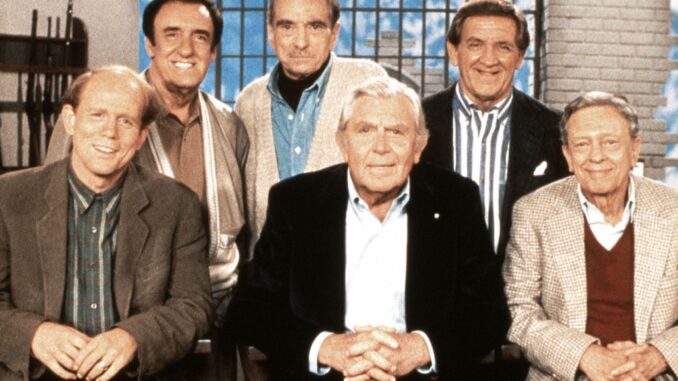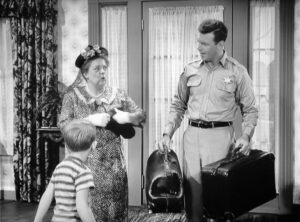
Ron Howard reveals the real reason behind one aspect of the iconic scenes in The Andy Griffith Show. Howard played Opie Taylor, debuting on the show when he was only six years old. The Andy Griffith Show was on air for eight seasons from 1960 to 1968, and remains one of the most beloved comedies of all time, with numerous iconic scenes and quotes still referenced today.
Speaking on Conan O’Brien Needs a Friend, Howard explains a critical aspect of The Andy Griffith Show’s scenes, which are the slower, drawn out dialogue sequences. Howard explained that “those bits were usually when the show was short.” When the team got to the end of their planned three-day shooting week, the showrunner would speak to star Andy Griffith if the episode was coming in shorter than the allotted air time.
As a result, Griffith and Barney Fife actor Don Knotts would come in to do one of these dialogue scenes. Check out Howard’s full quote below:
Well, those bits were usually when the show was short. So we would shoot Monday, Tuesday, and Wednesday, single camera. And we would rehearse on Thursdays, read on Thursdays, rehearse Fridays, shoot Monday, Tuesday, and Wednesday. And several times, these scenes that, the kinds that you’re citing, usually between Don and Andy, I remember vividly Aaron Ruben, our showrunner, coming down and saying, talking to Andy. And then Andy would — he always called Don Jessie — and he would say, ‘Jessie, we’re short! Come on.’ And the very last thing at the end of the Wednesday night shoot would be the two of them, and they would have just talked about it a little bit, and they’d wind up doing one of these scenes.

How A Filming Need Became The Andy Griffith Show’s Best Element
The Andy Griffith Show was meant to fill a half-hour time slot during its ‘60s airing time. Accounting for commercials, this meant that each episode had to come in at about 26 minutes in length. For a show that focused on character beats rather than elaborate episode plots, it makes sense why the series would find itself consistently coming in under time. What was most vital to the series was not what was necessarily written, but how characters experienced each other’s existence. Still, it’s fascinating to know that it was timing needs that drove these scenes.
Based on Howard’s quote, it also appears as if a lot of these Andy Griffith scenes were improvised. On the one hand, it is possible that Knotts and Griffith sometimes used this extra time to take longer with their individual line delivery (which, as imitated by O’Brien in the clip, is characteristically languid) and space between each other’s lines. On the other hand, however, Griffith and Knotts used mundane conversations to fill the time. These conversations that seemed unconcerned with pace were actually very intentionally paced as such, leading to the show’s unique rhythms.
The scenes also contributed to the feeling of naturalness that so characterized The Andy Griffith Show. While Knotts, Howard, Griffith, and the other cast members were playing characters on the show, all the main Andy Griffith characters always felt like real, fully-formed human beings. From Howard’s story, it is clear that said characterization came about after a long and hard day’s work, with two collaborators and friends bonding together over a need for increased run time. This bonding is evident on screen, giving rise to the beautiful dynamic explored in The Andy Griffith Show.
